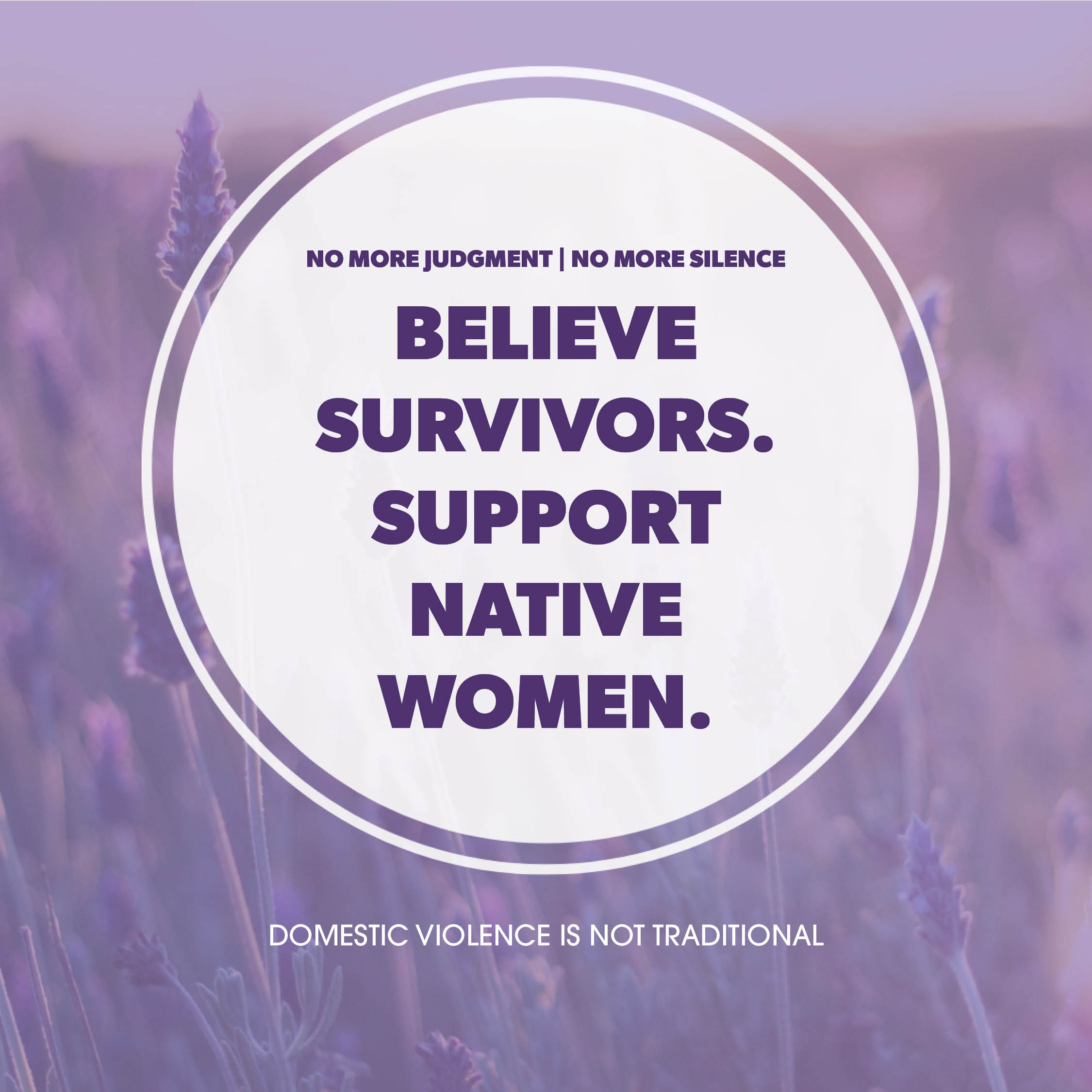 NIWRC supports the continual efforts of survivors, tribes, grassroots advocates, and communities to increase awareness of and action on domestic violence, a critical issue impacting Native communities across the United States. American Indian and Alaska Native women face some of the highest rates of domestic violence (DV) in the country and often go without supportive services for safety, justice, and healing. Native women are the targets of violent crimes including domestic violence at much higher rates than other groups. Domestic violence affects everyone in the home, including children.
NIWRC supports the continual efforts of survivors, tribes, grassroots advocates, and communities to increase awareness of and action on domestic violence, a critical issue impacting Native communities across the United States. American Indian and Alaska Native women face some of the highest rates of domestic violence (DV) in the country and often go without supportive services for safety, justice, and healing. Native women are the targets of violent crimes including domestic violence at much higher rates than other groups. Domestic violence affects everyone in the home, including children.
Domestic violence is not traditional to Native cultures, and it violates the very essence of who Native people are. This violence ends when we reclaim Indigenous values of respect and compassion, and we honor the sacredness of women and children. As relatives, it is our responsibility to speak out against domestic violence and ensure the voices of Native survivors are heard. Offenders must be stopped and held accountable. Hold space for Native survivors of domestic violence by listening to, believing, and supporting them on their journey to healing. Be a good relative by protecting and respecting Native women.





